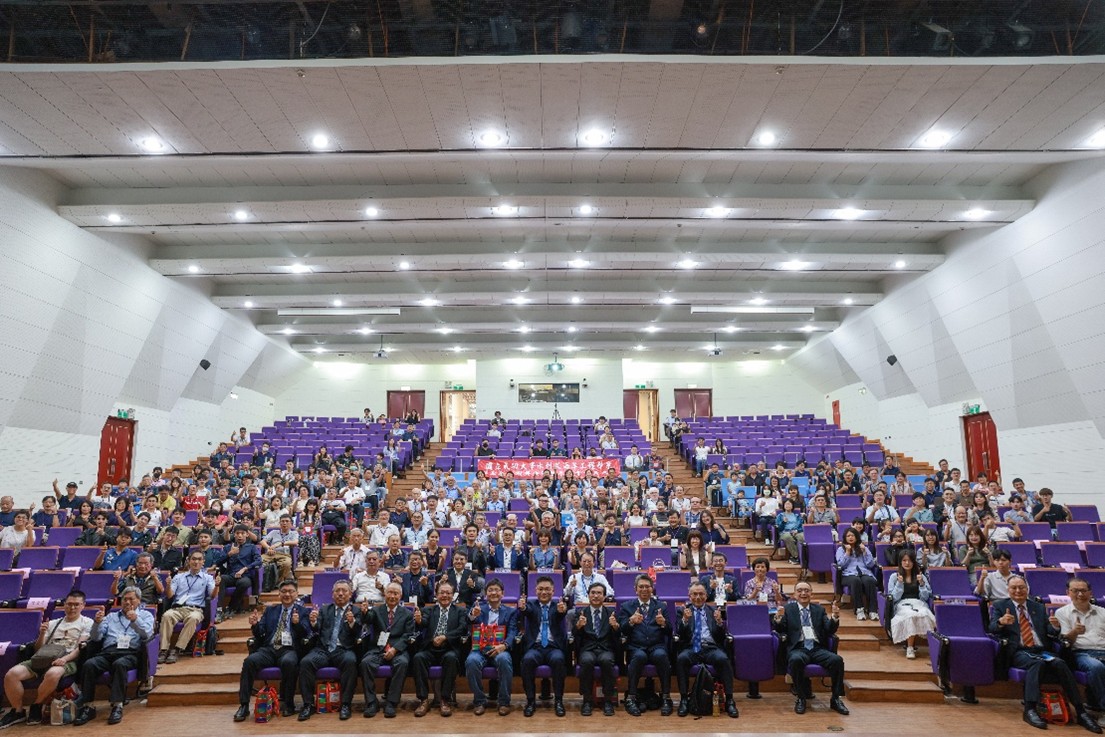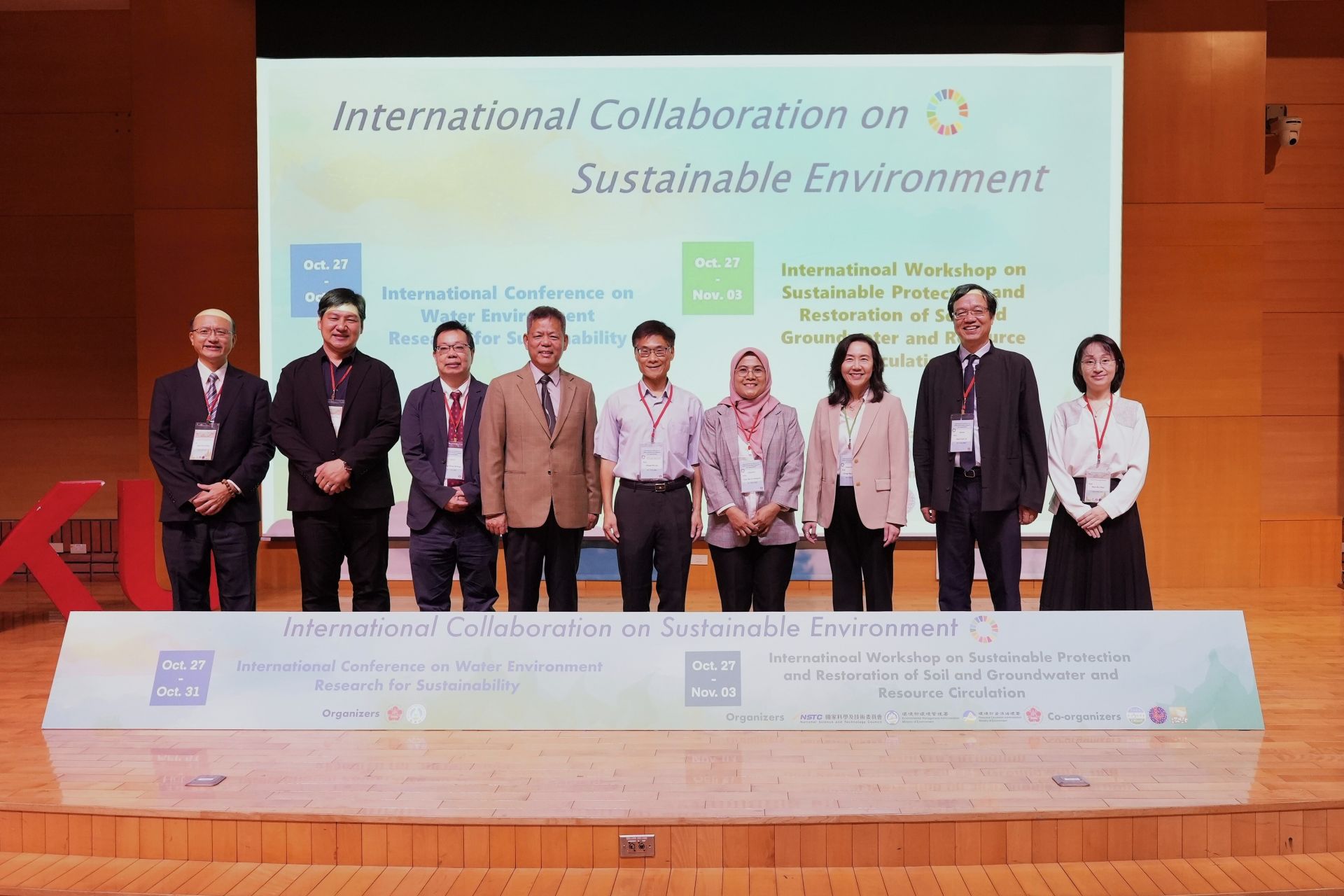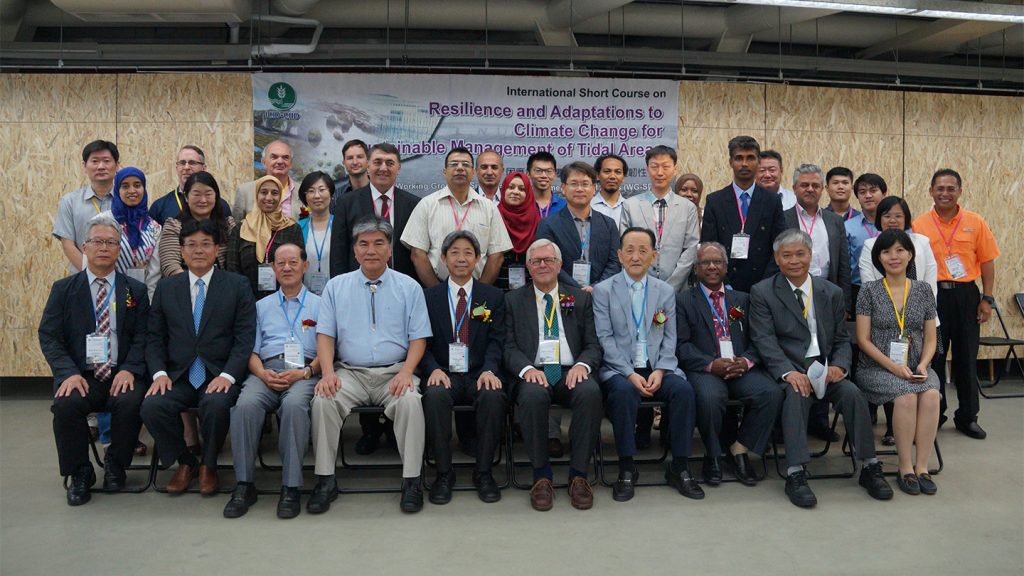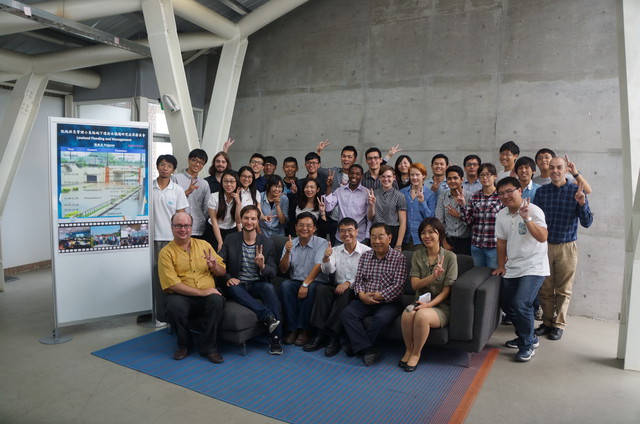Heavy rain causing flooded roadways is a travel headache for residents living in the neighborhood of the Xiao-Dong Underpass in Tainan City. A group of students led by Professor Hsiao-Wen Wang tried to tackle the problem and proposed possible solutions to it.
The course is named Lowland Flooding and Management which is opened for students taking the International Master Program on Natural Hazards Mitigation and Management at National Cheng Kung University (NCKU), Tainan, Taiwan.
After months of investigation and experiments, the students shared their research and proposed solutions to the problem at a recent presentation attended by professors, experts and officials from Tainan City government.
A total of 23 local and international students are divided into five groups to explore the issues behind the flooding.
One of the five teams proposed short-term solutions include portable pumping system of the onset flooding, safety drill, by passing the traffic and information processing by the media.
Another team’s short-term plan is to detours while mid-term is to build green infrastructure and long-term is to re-design drainage system.
“All the proposed ideas are practical and feasible. We will have our proposed solutions come true as part of the policy in the near future,” said Prof. Wang from the Department of Hydraulic and Ocean Engineering.
Mr. Shao-Bo Peng, Deputy Director of Water Resource Bureau in Tainan City Government said that he is happy to see such a great course at NCKU and appreciate all the efforts made by the students and teachers.
Mr. Shu-Hsu Wu also from Tainan City Government said, “Prof. Wang’s course is very practical and inspiring. In this course, students deal with real problems. In the past two to three months, students started to figure out the problem and come up with some good solutions today.”
This course involves the understanding of spatial planning, vulnerability, risk, and resilience to the problem of lowland flooding, according to Prof. Wang.
It emphasizes more on the systemic understanding that should underlie lowland flooding management and seeks to address issues from a holistic perspective, rather than traditional on-site structure-oriented strategies, she added.
The course is named Lowland Flooding and Management which is opened for students taking the International Master Program on Natural Hazards Mitigation and Management at National Cheng Kung University (NCKU), Tainan, Taiwan.
After months of investigation and experiments, the students shared their research and proposed solutions to the problem at a recent presentation attended by professors, experts and officials from Tainan City government.
A total of 23 local and international students are divided into five groups to explore the issues behind the flooding.
One of the five teams proposed short-term solutions include portable pumping system of the onset flooding, safety drill, by passing the traffic and information processing by the media.
Another team’s short-term plan is to detours while mid-term is to build green infrastructure and long-term is to re-design drainage system.
“All the proposed ideas are practical and feasible. We will have our proposed solutions come true as part of the policy in the near future,” said Prof. Wang from the Department of Hydraulic and Ocean Engineering.
Mr. Shao-Bo Peng, Deputy Director of Water Resource Bureau in Tainan City Government said that he is happy to see such a great course at NCKU and appreciate all the efforts made by the students and teachers.
Mr. Shu-Hsu Wu also from Tainan City Government said, “Prof. Wang’s course is very practical and inspiring. In this course, students deal with real problems. In the past two to three months, students started to figure out the problem and come up with some good solutions today.”
This course involves the understanding of spatial planning, vulnerability, risk, and resilience to the problem of lowland flooding, according to Prof. Wang.
It emphasizes more on the systemic understanding that should underlie lowland flooding management and seeks to address issues from a holistic perspective, rather than traditional on-site structure-oriented strategies, she added.

SDG6【94th Anniversary】The 70-Year Legacy of NCKU’s HOE Strengthening Expertise to Witness Taiwan’s Water and Marine Development
View more
SDG6NCKU's International Workshop on Soil and Water Conservation and International Symposium on Sustainable Water Environment
View more




















